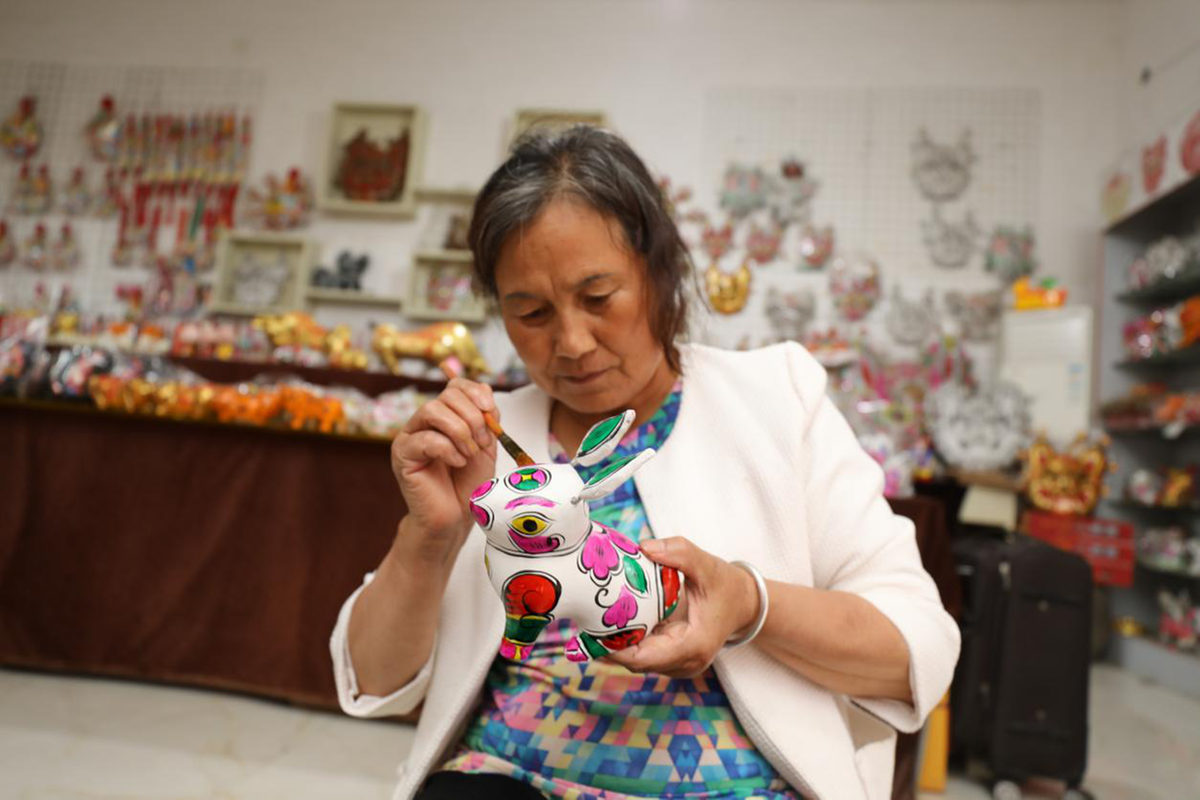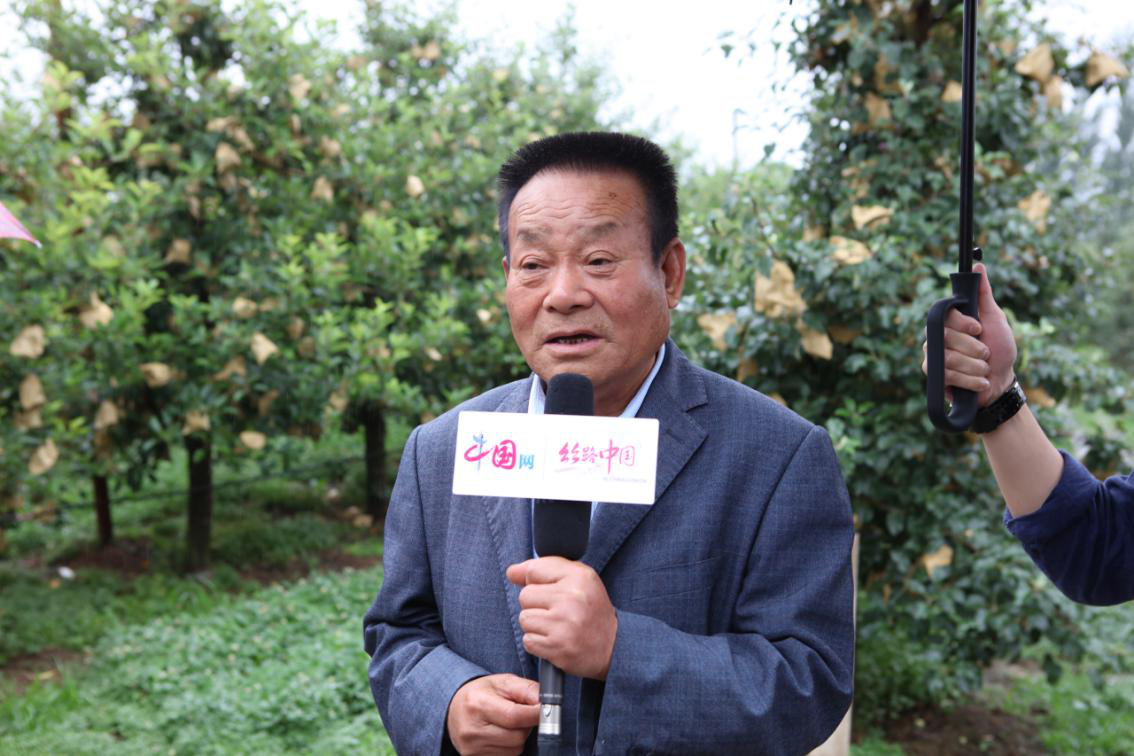Focus: rural revitalization in NW China's Shaanxi

"The finished products made of this kind of cloth, such as pillows, beddings, scarves and clothes, are quite popular and sell well in France, India and Korea," said Ning Huiqing, founder of the company, "The completion of an industrial base for poverty alleviation and a characteristic town will further promote local employment and lift around 200 poor women out of poverty."

As a national intangible cultural heritage, Fengxiang clay sculpture has a strong flavor of rural life and possesses high value in terms of folk culture and aesthetic research. The sculptures have absorbed emblazonry elements from ancient stone carvings, New Year pictures, paper-cutting and embroidery, and often take the shape of Chinese zodiac and figures from classic folk novels.
Over the past few years, the clay sculpture industry has become a major source of income for villagers in Fengxiang county. The local government and inheritors of the craft have broken new ground for the industry. Beyond ornaments or children's toys, the clay sculpture now integrates modern fashion elements and is made into various cultural and creative products or articles of everyday use to meet the diversified needs of different age groups and fully realize its business value.
To give full play to the advantages of the industry, Liuying village, the major production base of Fengxiang clay sculpture, has set up training institutes and exploration halls to let more people learn about the traditional folk art. The village has been turned into a hot spot for folk tourism, which both increases local residents' income and expands the influence of the traditional art.

Shaanxi province has the largest planting area and output of apples in China because of its moderate climate, plentiful rainfall and fertile soil. Statistics show that one out of seven apples in the world is grown in Shaanxi.
In recent years, Fengxiang county has been making efforts to develop planting industries with local characteristics led by the apple industry. It introduced the development pattern of modern agriculture and made innovations in growing methods to cultivate high-quality apples with both good-looking appearance and great taste.
After years' of development, the Fengxiang apple industry has begun to take shape and built up its brand. In 2018, the output of the whole county totaled 230,000 tons with a value of 1.38 billion yuan. The per capita fruit income of farmers in Fanjiazhai town reached 6,300 yuan, accounting for over 70 percent of the per capita disposable income of rural residents. Apples have become not only the supporting industry of the local economy, but also a golden key to prosperity for local people.

























